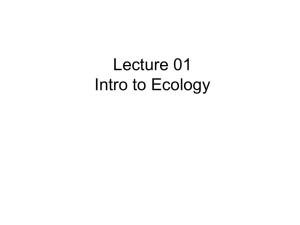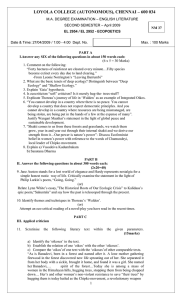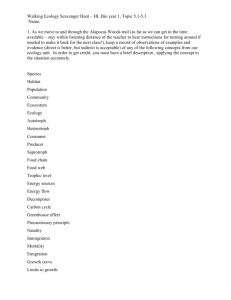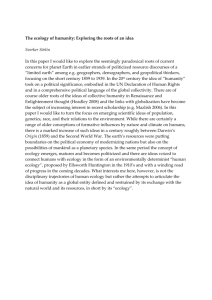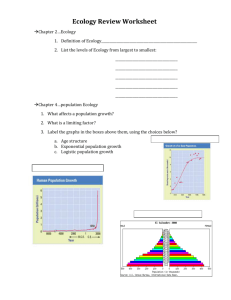Comments on “Earth Democracy” from Alypios
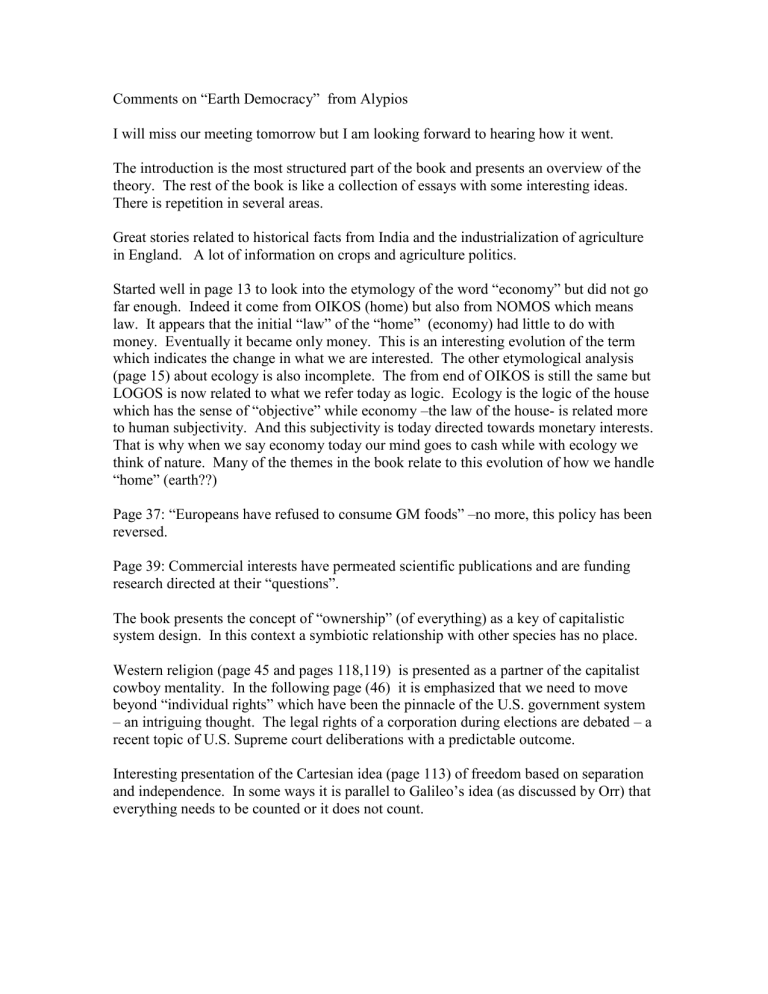
Comments on “Earth Democracy” from Alypios
I will miss our meeting tomorrow but I am looking forward to hearing how it went.
The introduction is the most structured part of the book and presents an overview of the theory. The rest of the book is like a collection of essays with some interesting ideas.
There is repetition in several areas.
Great stories related to historical facts from India and the industrialization of agriculture in England. A lot of information on crops and agriculture politics.
Started well in page 13 to look into the etymology of the word “economy” but did not go far enough. Indeed it come from OIKOS (home) but also from NOMOS which means law. It appears that the initial “law” of the “home” (economy) had little to do with money. Eventually it became only money. This is an interesting evolution of the term which indicates the change in what we are interested. The other etymological analysis
(page 15) about ecology is also incomplete. The from end of OIKOS is still the same but
LOGOS is now related to what we refer today as logic. Ecology is the logic of the house which has the sense of “objective” while economy –the law of the house- is related more to human subjectivity. And this subjectivity is today directed towards monetary interests.
That is why when we say economy today our mind goes to cash while with ecology we think of nature. Many of the themes in the book relate to this evolution of how we handle
“home” (earth??)
Page 37: “Europeans have refused to consume GM foods” –no more, this policy has been reversed.
Page 39: Commercial interests have permeated scientific publications and are funding research directed at their “questions”.
The book presents the concept of “ownership” (of everything) as a key of capitalistic system design. In this context a symbiotic relationship with other species has no place.
Western religion (page 45 and pages 118,119) is presented as a partner of the capitalist cowboy mentality. In the following page (46) it is emphasized that we need to move beyond “individual rights” which have been the pinnacle of the U.S. government system
– an intriguing thought. The legal rights of a corporation during elections are debated – a recent topic of U.S. Supreme court deliberations with a predictable outcome.
Interesting presentation of the Cartesian idea (page 113) of freedom based on separation and independence. In some ways it is parallel to Galileo’s idea (as discussed by Orr) that everything needs to be counted or it does not count.
